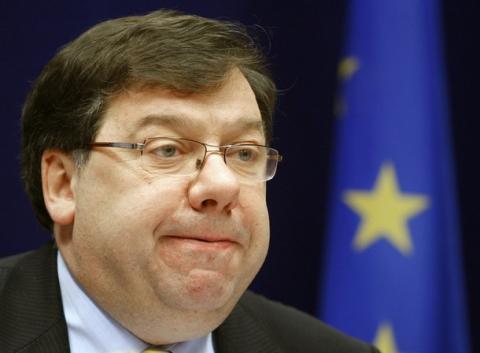This is truly the worst government in our history

It is unfortunate for the country that we have a government that may be the worst ever - and that is saying something, writes Vincent Browne.
Forget national governments or consensus governance.
Fianna Fáil does not want to share decision-making with anybody except when they have no option.
Nor do they want to share information for information is part of the trappings of power - though they will concede a bit of information now for the optics.
Nor do they want a general election, even though having a new government in office with a five-year mandate is precisely what is required to give credibility to a four-year budgetary strategy.
That’s the way with Fianna Fáil: what is in their interest, happens always to coincide what they think - certainly that they claim- is the national interest. It has worked for them before and it may work for them again. Not immediately, but in five years or so.
Too bad about the country.
It is unfortunate for the country that we have a government that may be the worst ever - and that is saying something.
There is a case to be made that the first pro-treaty government that engaged in the reprisal murders of 77 prisoners was the worst government ever, even though they established the institutions of the new state.
The Cumann na nGaedheal government of 1927 to 1932 was also an awful government.
The Fianna Fáil government of 1951 to 1954 was an awful government and Jack Lynch’s government of 1969-1973 was an awful government.
The Fine Gael-Labour coalition government of 1973-1977 was an awful government.
The Jack Lynch government from 1977 to 1979 was an awful government.
The Charlie Haughey government of 1979 to 1981 was an awful government and the Garret FitzGerald government of 1982 to 1987 was an awful government.
But, aside from the first government, this one beats Banagher.
They have come close to destroying the country, along with the health service. No other government has come close to doing that.
If any one of three elements goes wrong in the next few months, we are done for, although we must realise that we are probably done for anyway.
If the Paddy McKillen challenge to Nama were to succeed in the High Court, we could be done for. Certainly the Supreme Court would hear an appeal pronto, but if the Supreme Court were to uphold a finding that part of the Nama legislation was unconstitutional, then big problems for the credibility of the banking strategy would be holed under water.
This seems unlikely, as the judges of the High Court and the Supreme Court may find that the exigencies of the common good override any procedural defects in the Nama setup - but that is merely a quick personal opinion.
If, over the next few months, it emerges that the Central Bank and the Financial Regulator were wrong in assessing that the bank bailout would cost €50 billion and that the likely cost is significantly more, then we will have big problems.
This seems more likely than not because of the bizarre decision that the evaluation of the cost of taking properties to Nama would be made on the assumption that property prices are now the same as they were in November 2009.
This quixotic assessment was founded in part on a view that property prices in Britain were increasing, but we have discovered in the last few days that British property prices have taken another fall.
There is the further vulnerability because the four-year budgetary strategy by Fianna Fáil and the Green Party might fail to engender the required credibility, either because they have made a hames of this as well or because it is politically implausible that their devastating adjustments will be tolerated by the electorate.
If any one of these things goes wrong, then prepare the way for the European Union and the International Monetary Fund (IMP).
The state will have to return to the financial markets in early spring next year and if by then the financial markets think we are a basket case, there won’t be the funds to support the state in the second half of the year.
Our only hope then will be the IMF and/or the EU. It will be a humiliating concession on the part of this state that was established with such optimism about our capacity to govern ourselves.
But even if there is no EU/ IMF assistance, cuts and tax increases of €4 billion in December 2010,more of the same in December 2011, again in 2012 and again in 2013 will do devastating damage to public services, standards of living, to employment and to the health of the economy.
This is the scale of the vandalism which Fianna Fáil have, along with the Progressive Democrats and more recently the Greens, caused. But have no fear they will be back, or rather Fianna Fáil will be back.
It will be a Fine Gael/Labour government that will enforce the depredations of the 2012, 2013 and 2014 budgets, by which time the poisoned legacy of Fianna Fáil will be forgotten.
In the meantime, Fianna Fáil will have transmogrified into the champions of the people, back in office after the 2016 election with a handsome majority, and it will start all over again.
Happy days.
